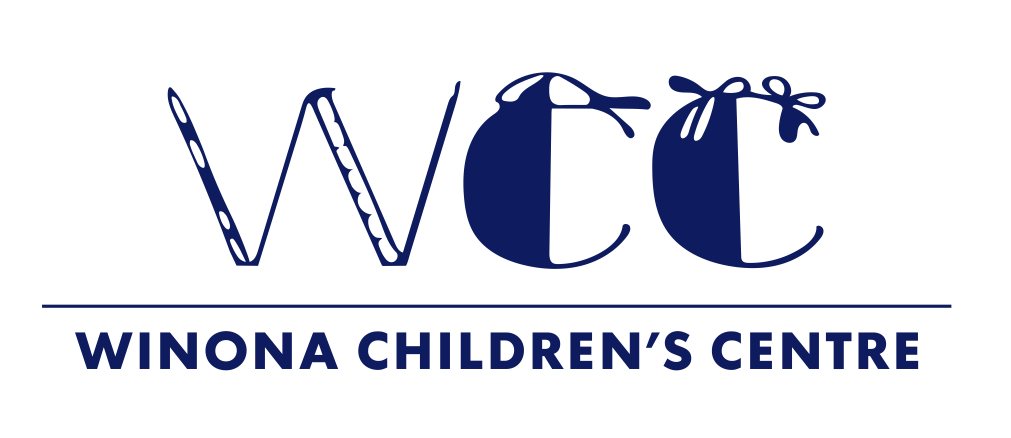Our Program Statement/Philosophy:
A child is born with an open mind and is waiting to be given the opportunity to explore the world around them. They are intelligent, capable, and curious to the vast experiences that are presented to them. At Winona Children’s Centre our goal is to expand that open mind with well-balanced programming that meets the emotional, social, creative, intellectual, and physical needs of children. We emphasize the development of individuality, a good self-image and a sense of independence in our daily activities.
We provide a series of learning experiences in major areas such as:
Life skills
Social activities, communication skills, decision-making capabilities
Creative expression through visual art, music dance, and drama
Pre-school readiness activities: nature, literacy, numeracy, science and technology
Construction and design
Curiosity, self-expression and initiative
Independence
Development and refinement of gross motor and fine motor skills
Rest and relaxation based on their developmental needs
At Winona Children’s centre we recognize that every child is unique and brings varying abilities therefore spaces that encourage exploring and development of unique creativity are provided. We ensure the spaces are safe and caring where the child feels at home so they can grow and develop to their full potential. We aim to integrate all areas of the child’s development into our program in a holistic way including family, community and life experiences. We hope that by doing so the child feels a sense of belonging and well-being to allow them to feel engaged in their learning and express themselves in different ways.
Our goals at Winona Children’s Centre include but are not limited to:
A) Provide an environment that encourages healthy eating habits and a variety of healthy snacks and foods that are prepared on premise and access to drinking water at all times. We also uphold all safety and health guidelines outlined in the CCEYA and strive to help the child develop a sense of overall well-being.
B) Create positive interactions among children, their peers, their teachers and also with parents and the community to help build trusting relationships. We understand the importance of healthy interactions and we provide oppourtunities for children to collaborate and work co-operatively among all partners involved in their care. At Winona Children’s Centre we strive to promote inclusivity and a sense of belonging for all children and their families.
C) Create an environment that accepts everyone in a positive manner and represents a diverse community. By doing so children can learn to interact and communicate with one another and discuss differences therefore they can become more accepting. Also understanding children’s uniqueness and helping to guide them with self-regulation skills will ensure positive interactions and communication skills with their peers and their teachers. All children will be welcomed and have the opportunity to attend within our hours of operations. We will implement an entry plan for each student with special needs.
D) Create environments that foster play, inquiry and exploration by providing opportunities to learn with a variety of play materials. Also including the children’s ideas into planning activities and learning experiences. Play experiences are guided by the children and supported by the teachers to ensure the child is engaged in their learning. Also by providing choices in play experiences the child is able to develop a sense of worth and helps to support their growth and development.
E) Provide routines that include indoor play, outdoor play, large group activities, snacks, lunch, rest and quiet time to help the child feel a sense of structure and control over their day. Also to ensure all individual needs are met during these routines and allowing the child to have independence in the decision making process of the daily routine.
F) Create peace of mind for families while their child is at Winona Children’s Centre by ensuring open and ongoing communication with staff and families about the program and their children. We understand the importance of daily logs and observations so families have an oppourtunity to ask questions and are open to any questions or concerns parents have about their children. All interactions will be approached with respect, care, empathy, trust and integrity to ensure the care the children receive at Winona Children’s Centre is a partnership with their families. Parents are encouraged to share knowledge.
G) Create a support system of community partners that will help children, families and staff meet their goals of care. We have different community agencies that help support staff, families, and children. We also provide learning experiences for members of the community in volunteer and student placement oppourtunities. Programming adaptations and modifications will be made to provide every child the oppourtunity to participate to their fullest ability. We will work in collaboration with resource consultants, therapists, and parents to further our knowledge of each child’s needs.
H) Hire qualified trained staff who have positive and sensitive attitudes towards children who are fairly compensated. Also to treat all staff with respect and dignity. Provide staff with learning oppourtunities to enhance their professional learning. By doing so the staff become an integral part of the Winona Children’s Centre family. The staff are part of the planning process for daily learning activities in the classroom and help to create positive learning experiences for the children that helps to support their growth and development. Staff will attend all meetings to further their knowledge of the child’s needs. Staff will seek out and attend training necessary to fulfill the needs of each child
Provide accurate documentation of children’s daily routines for the families. Also create documentation that reflects on the children’s experiences and make observations to help create future learning experiences based on those observations. This documentation helps staff and families reflect on the program and the growth and development of the children. It also allows children to become part of the planning process and helps them to reflect on what they have learned from previous experiences.


